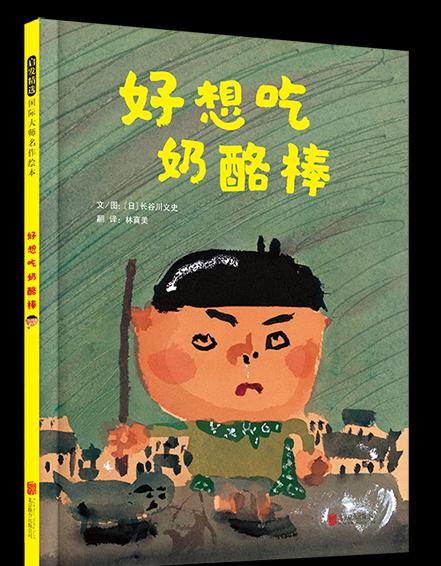Have you ever encountered a situation like this:
Take your children out to play, children often want this, that also wants, as a parent, on the one hand, want to meet the child's wishes, on the other hand, hope that the child will not spend money indiscriminately, left and right.
Today we will tell three stories about children's "good wants",
Look at what children of different ages want, and how parents in picture books respond, hoping to bring some inspiration to everyone.
The more difficult it is to obtain, the longer the children think about it, the more they remember it. As we get older, what kids want is constantly changing.
Young children want to "eat".

In "I Want to Eat a Cheese Stick", 5-year-old Yi Shi cries and complains about the injustice of the world, only for the neighbor Ah Liang to eat a cheese stick that he has not eaten!
"That white, yellow thing, I haven't eaten it, God knows what it tastes like."
"The Fujii family's Ara always eats cheese sticks bought from the butcher's shop"
"Mom wouldn't buy me a cheese stick from a butcher's shop,"
……
"That's the cheese stick I'm dreaming about."
Slightly older children care about "wearing".
Jeremy, a schoolboy in "Good to Want That Pair of Shoes", saw the big advertisement on the wall and felt that "this pair of shoes is worth having."
Moreover, in the school, most of the classmates already have "owned".
Grandma told him: "In our family, there is no such thing as wanting anything, only needing it." ”
However, in the blink of an eye, Jeremy was ridiculed by the whole class because he wore a pair of "different" shoes...
Anything can become popular in schools,
It is difficult for children to stand alone in the face of this trend.
For older children, the attraction of eating and wearing is sometimes less "useful".
Ruben wanted a bike for the simple reason – every friend had one!
But seeing that his mother was still worried about the family, Ruben could only shut up about the bicycle.
The attraction of substances has an effect on anyone,
Even a small child can't avoid it,
The anxiety in their hearts forced them to take actions that were "within their capabilities",
So we see Yishi weeping in front of his mother;
Jeremy pulls Grandma's family to visit second-hand stores one by one;
Ruben picked up the hundred-dollar bill and fell into hesitation about whether to return the goods to its original owner;
For children, the world is full of temptations,
A lot of times they have to face painful choices —
Whether to correct unrealistic ideas or unrealistically realize your own ideas.
On the other hand, for parents,
The "good wants" of children are sometimes like bombs.
Blowing up the peace of the day,
Leaving a deep and shallow "pit".
Rich or poor, every parent must face the "good wants" of their children.
Instead of having a big head, it is better to use it as a good time to guide the child,
We can fulfill the wishes of our children like Yishi's mother,
Within the scope of their ability, give children the opportunity to experience the world,
Let Yoshishi derive his own, unique feelings:
Realizing what you want is not only a surprise, but sometimes it can be a "tragedy".
We can also be like Jeremy's grandmother, accompany the child to the second-hand store, understand the child's mood and help the child clarify the "want" and "need", and give the child a warm hug when they are helpless and confused.
We should be more like Ruben's parents,
After the child faces a dilemma and bravely makes a choice, tell him
"What you do is not simple", "You did it right", "We are really proud of you"...
These three stories about "good wants" are not created by the same author, but from the East and West, picture book masters and children's literature writers in their own contexts.
The famous picture book master Hasegawa Yoshishi combined his own personal experience to create "Good to Eat Cheese Stick", encouraging parents to give their children the opportunity to experience the world within the scope of their ability, and encouraging children to derive their own understanding of the world through experience, which can help children gradually form their own independent judgment of things.
Mary Beth, a famous American children's literature writer, let young readers see Jeremy's hard-earned beloved shoes to classmates who need shoes more through "Good Want Like a Pair of Shoes", make choices that do not succumb to materialism in the face of ridicule, and experience the true meaning of kindness and generosity. In a materialistic society, this book is especially a wake-up call for parents, reminding them not to lose sight of the meaning of educating their children about "needs.".
In "Good Want Sergio's Bike", through Ruben's actions, it is told that children get far more happiness and pride in choosing to do the right thing than having a "good want" bike.
I wish the children a more solid step in life and more dreams in the new days.